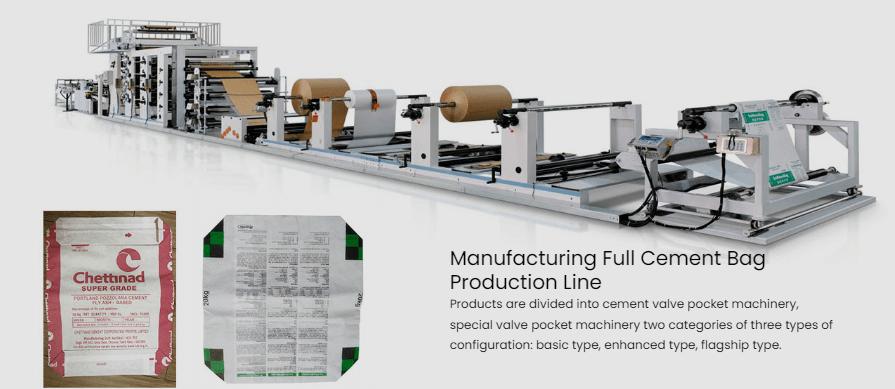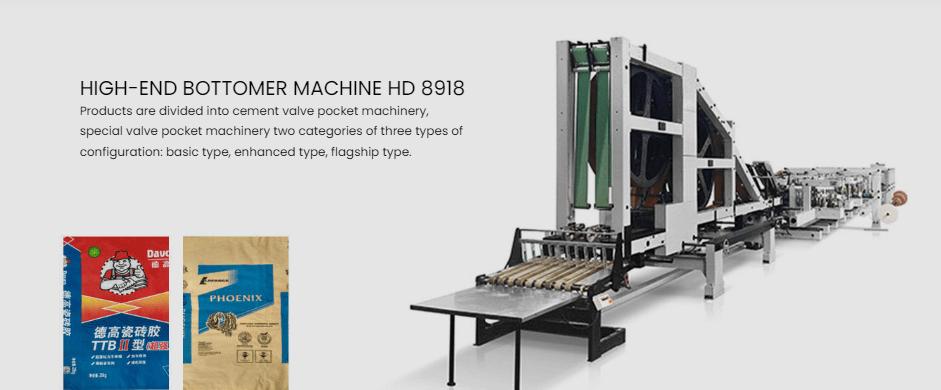PP水泥袋制造机有哪些好处?
PP 水泥袋在建筑行业中发挥着重要作用。这些袋子用于盛放和运输水泥,确保水泥在到达最终目的地之前保持完好无损且不受污染。
为了满足对这些袋子日益增长的需求,制造工艺已经发生了重大的变化。
在这篇最终文章中,我们将探讨什么是PP 水泥袋机械,如何使用这些袋子,以及使用 PP 水泥袋制造机的诸多好处。
为了满足对这些袋子日益增长的需求,制造工艺已经发生了重大的变化。
在这篇最终文章中,我们将探讨什么是PP 水泥袋机械,如何使用这些袋子,以及使用 PP 水泥袋制造机的诸多好处。
什么是PP水泥袋机械?
PP水泥袋机械是指专门生产聚丙烯(PP)材质水泥袋的一套专用机器。
这些机器在制造过程中至关重要,因为它们能够大规模生产高质量、耐用的水泥袋。
PP水泥袋机械包括一系列设备,包括挤出机、印刷机、切割和缝纫机,甚至质量控制设备。
这些机器在制造过程中至关重要,因为它们能够大规模生产高质量、耐用的水泥袋。
PP水泥袋机械包括一系列设备,包括挤出机、印刷机、切割和缝纫机,甚至质量控制设备。
PP水泥袋机械的工作流程是怎样的?
生产过程从将 PP 颗粒挤压成连续的管状织物开始,然后将其切割成合适的袋子长度。可以使用印刷机添加品牌或产品信息,最后缝制和完成袋子。整个过程都是自动化的,可以根据客户的特定要求定制生产各种袋子尺寸和设计。
PP水泥袋有什么用途?
PP水泥袋是水泥的主要包装材料。它们在建筑行业中发挥着至关重要的作用,并具有以下几个重要功能:
●密封性:PP水泥袋可牢固地密封水泥,防止在储存和运输过程中发生溢出和污染。
●保护:这些袋子可保护水泥免受湿气、紫外线辐射和物理损坏等外部因素的影响,确保水泥质量保持完好。
●搬运和运输:PP 水泥袋易于搬运、堆放和运输。其耐用性确保水泥袋能够承受装卸和运输过程中的粗暴搬运。
●品牌和信息:制造商可以在袋子上直接印刷重要信息,包括品牌、产品详情和使用说明,提供宝贵的营销机会。
●可持续性:PP水泥袋通常可回收且环保,有助于可持续的建筑实践。
●安全性:PP水泥袋的强度和质量可降低因袋子损坏或撕裂而发生事故的风险,从而提高施工现场的安全性。
●密封性:PP水泥袋可牢固地密封水泥,防止在储存和运输过程中发生溢出和污染。
●保护:这些袋子可保护水泥免受湿气、紫外线辐射和物理损坏等外部因素的影响,确保水泥质量保持完好。
●搬运和运输:PP 水泥袋易于搬运、堆放和运输。其耐用性确保水泥袋能够承受装卸和运输过程中的粗暴搬运。
●品牌和信息:制造商可以在袋子上直接印刷重要信息,包括品牌、产品详情和使用说明,提供宝贵的营销机会。
●可持续性:PP水泥袋通常可回收且环保,有助于可持续的建筑实践。
●安全性:PP水泥袋的强度和质量可降低因袋子损坏或撕裂而发生事故的风险,从而提高施工现场的安全性。
PP水泥袋制造机的好处?
pp水泥袋机械是一种重要的包装机械,为水泥制造商和袋子生产商带来了多种好处:
●生产效率高:PP水泥袋制造机采用全自动生产,能够在短时间内生产大量袋子,确保持续供应以满足市场需求。
●定制:这些机器可以调整以生产各种尺寸、厚度和设计的袋子,以满足客户的特定需求。
●成本效益:自动化可减少劳动力成本、减少材料浪费并提高整体生产效率,从而节省成本。
●质量控制:先进的质量控制功能确保生产的每个袋子都符合严格的质量标准,从而降低出现缺陷和产品召回的可能性。
●可持续性:许多现代 PP 水泥袋机旨在通过优化材料使用和降低能源消耗来减少对环境的影响。
●多功能性:除了水泥袋,这些机器还可以生产各种用途的袋子,例如食品、农业和工业包装。
提高市场竞争力:以有竞争力的价格生产高质量、可定制的袋子的能力有助于制造商在市场上获得优势。
结论
PP水泥袋机械在水泥行业中发挥着至关重要的作用,使制造商能够高效地生产高质量的袋子。这些袋子反过来有助于在储存和运输过程中保护水泥,有助于建筑项目的整体成功和安全。
通过使用合适的设备,水泥制造商可以满足市场需求,降低生产成本,并为更可持续的建筑业做出贡献。


